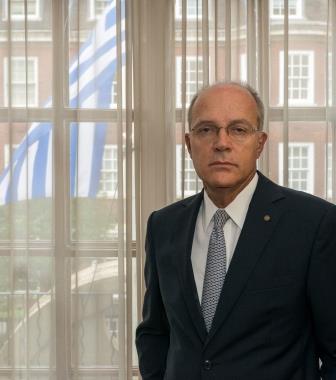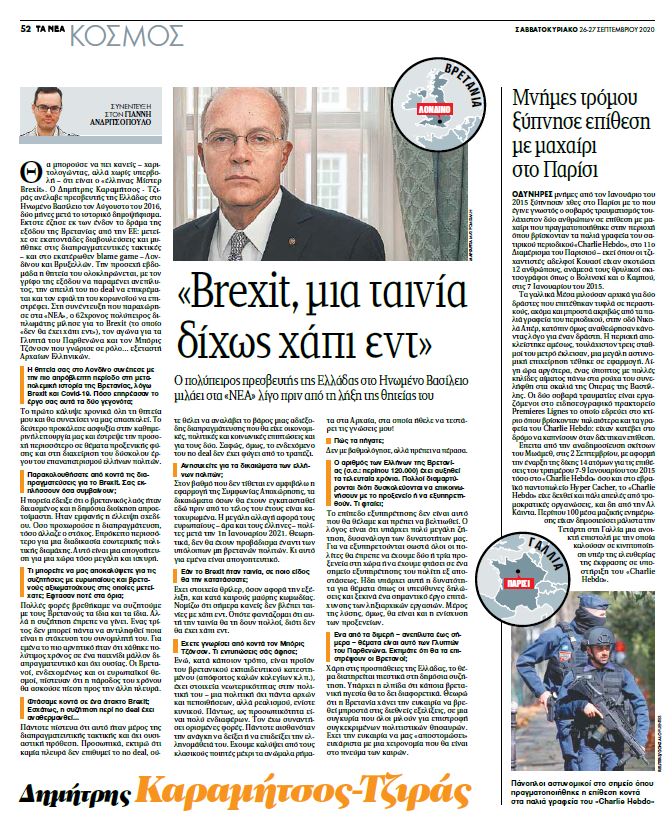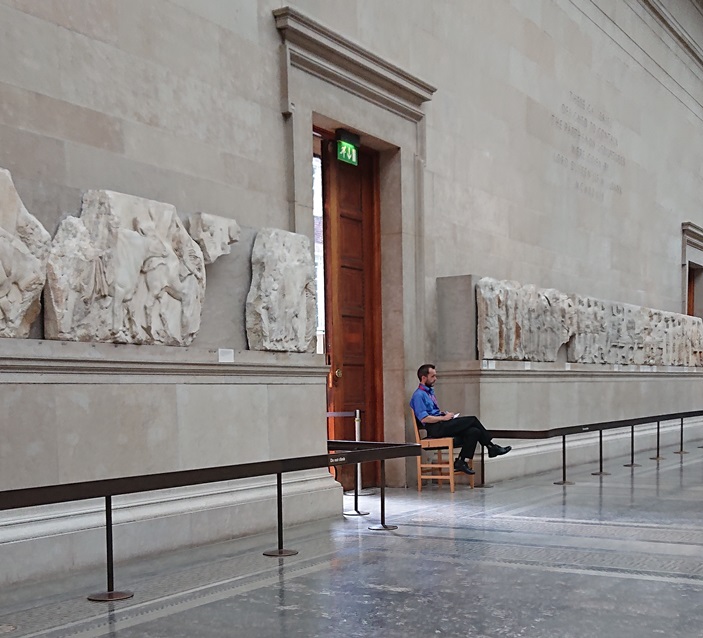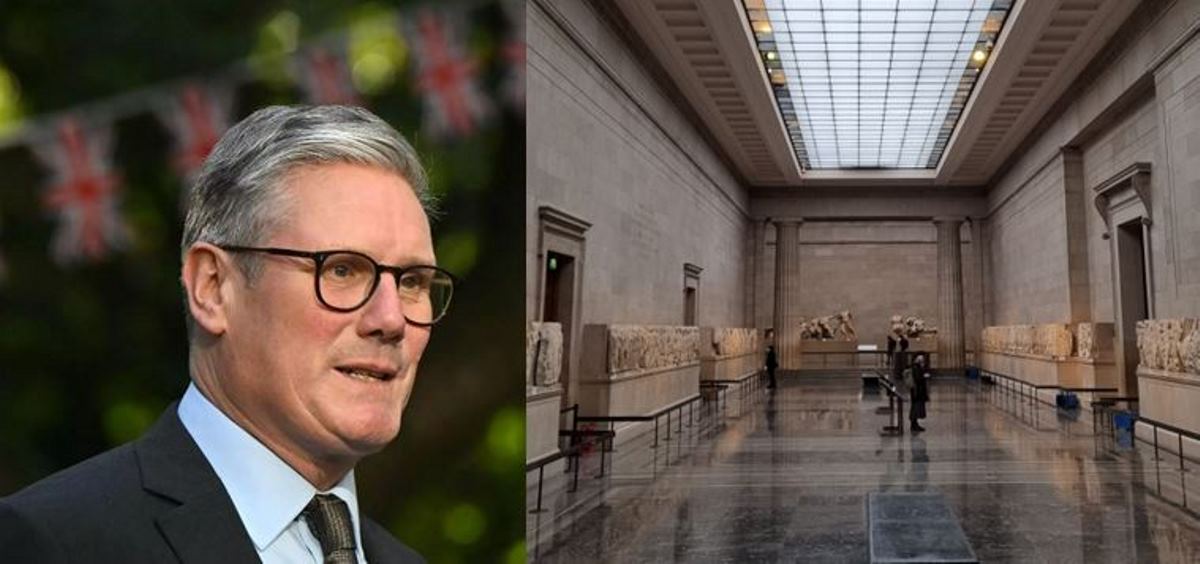On August 2016, H E Ambassador Dimitris Caramitsos-Tziras came to London to start his term as Ambassador of Greece in the UK. In these three years that he has lived and worked in the UK, he has witnessed a sea change, from the outcome of the UK's Referendum and the on going Brext negotiations, to the election of Prime Minister Boris Johnson, plus the ongoing plight of the Parthenon Marbles, sadly still divided bettween Athens and London.
Yannis Andritsopoulos, UK correspondendant for Ta Nea, interviewed Ambassdor Dimitris Caramitsos-Tziras and the article can be read in Greek online here: https://www.tanea.gr/print/2020/09/26/world/brexit-mia-tainiacrdixos-xapi-ent/.
Taking up his post in London in the summer of 2016, Ambassador Dimitris Caramitsos-Tziras experienced Britain's post Brexit Referendum division. This was followed by a myriad of consultations and challenges. Now as he prepares to return to Athens, the final outcome is still uncertain. "The British people were divided and the civil service unprepared. The lack of a plan was obvious. The further the negotiation progressed, the more the goal posts were moved. It was more of a process of internal political controversy. This is a disappointment for a country so big and powerful." Commented Ambassador Caramitsos-Tziras in Ta Nea.
"Recently, the no deal debate has reignited... I have always believed that this was part of the negotiating tactic and not a substantive intention. Personally, I believe that neither side wants a no deal, nor does it want to bear the burden of a deadlocked negotiation that would have economic, political and social implications for both. Clearly, though, the possibility of no deal has not gone off the table."
And on Prime Minister Boris Johnson, the Ambassador acknowledges that Johnson is 'a product of the British educational establishment' and yet has "elements of modernity in his politics - a policy not always of principles and beliefs, but of realism, sometimes cynical. As a personality, he's very interesting. I've met him a few times. He always felt the need to show or demonstrate his ability to speak the Greek language. We covered the classical poets to the irregular verbs in Ancient Greek, which he test my knowledge!" Adds the Ambassador.
And on the matter of the reunification of the Parthenon Marbles, Yannis asked the Ambassador: "Do you think the British will return them?"
The Ambassador's reply sums up the current position:"Thanks to Greece's efforts, the pressing issue remains in the public debate. There is hope that some British leaders will see it differently. I believe that Britain is missing the opportunity to be at the forefront of international developments, at a time when everyone is talking about the return of certain cultural treasures. Prime Minister Johnson has the opportunity to make a magnanimous gesture that would be a reflection of the true spirit of these times."

H E Ambassador Dimitris Caramitsos-Tziras concludes his term of office in the UK on 30 September 2020
On our part, Chair Janet Suzman and Vice-Chair Professor Paul Cartledge plus the 13 members of our Committee (BCRPM), wish to thank the Ambassdor for his help and support over these past three years. Most memorable was the Ambassador's letter to Dr Hatwig Fischer, Director of the British Museum on 26 April 2018. The Ambassador poliely turned down the opportunity to attend the opening of the 'Rodin and the Art of Ancient Greece' exhibition. You can read the letter here too. For BCRPM's press release on the Rodin exhibition, kindly follow the link or read more on articles written at that time, check out https://www.parthenonuk.com/latest-news/41-2018-news/393-rodin-bm-exhibition-not-a-justification-for-keeping-them-in-london and https://www.parthenonuk.com/component/content/article/26-articles-and-research/400-the-rodin-exhibition-at-the-british-museum-is-now-open?Itemid=101






Comments powered by CComment